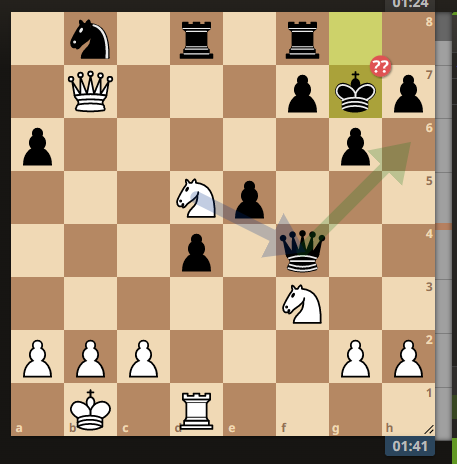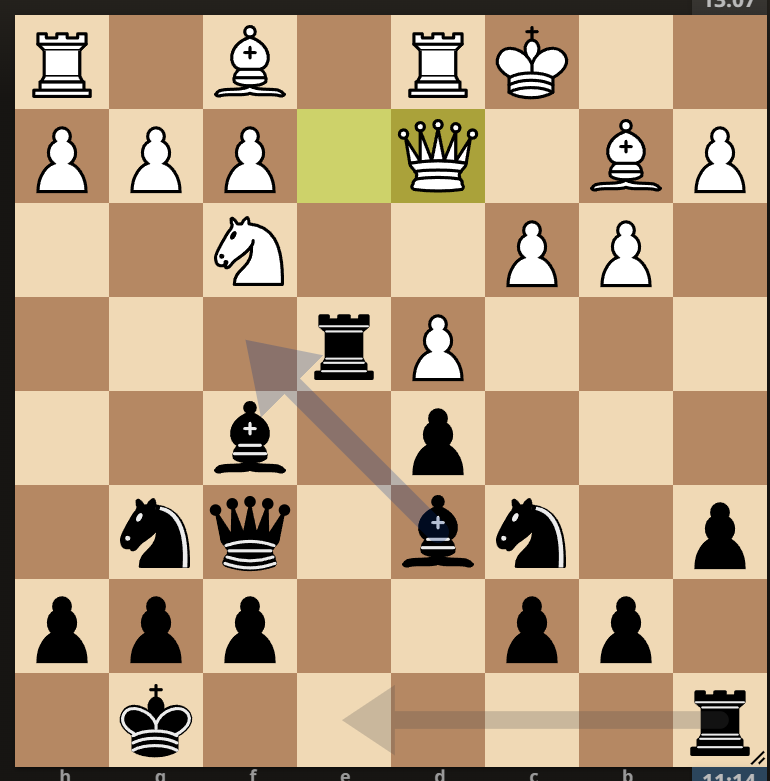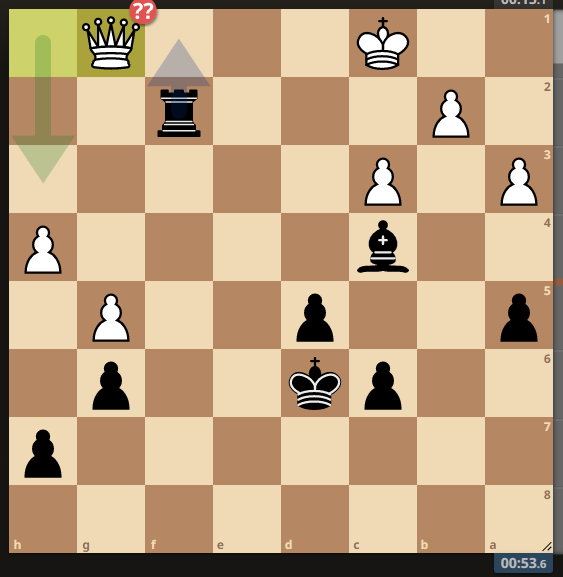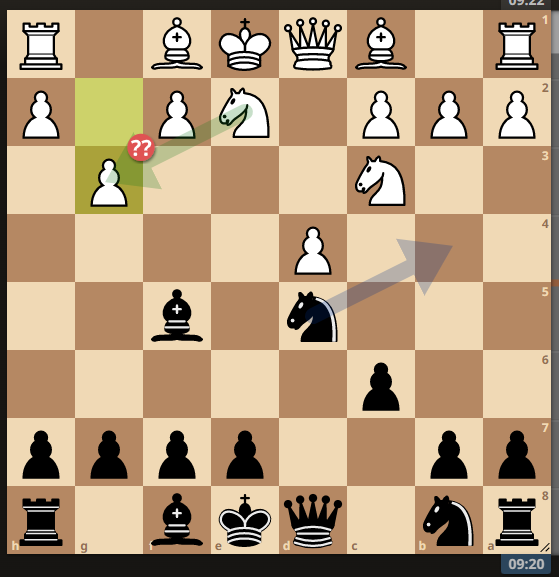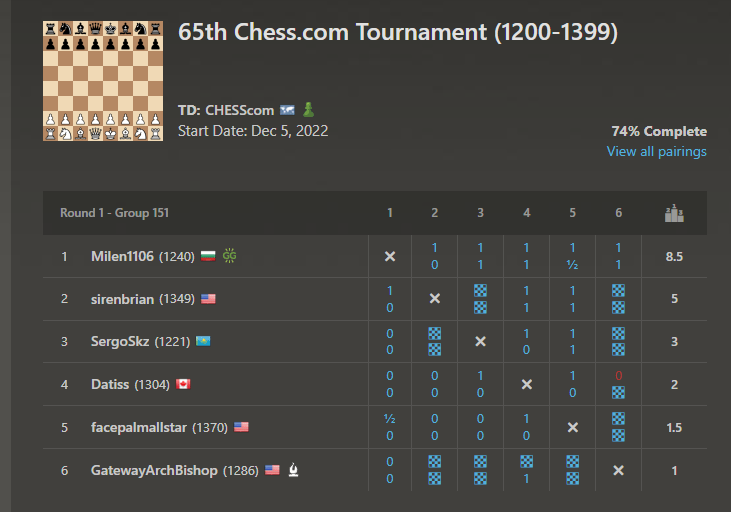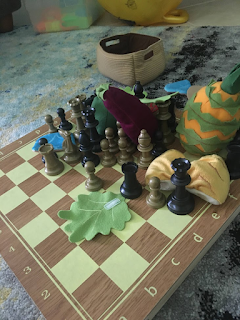Here's a nice tip for improving your puzzle rush score - at the start of each puzzle make sure you're looking at the TOP of the board (your opponent's pieces), not at your pieces along the bottom. I don't remember conciously deciding to always start by looking at my own pieces, but I stumbled across this by accident and today I went from 21 in 3 minutes (which I've done many times) to hitting 22, then 23 in just three attempts.
I'm also doing aimchess's Tactics Challenge, where you do tactics puzzles with either 1, 5 or 10 minute time limit. You also have a time limit per puzzle: 10 seconds, 30 seconds or 2 minutes. You pick the level of difficulty; try and pick something slightly challenging for yourself. My "instant solving" stops around 1200; you want a length of time that matches a typical "have a think about this move" in a real game. If you like blitz, pick the ten seconds or 30 seconds options to simulate what you'll be doing in a real game.
I'm a bit annoyed at myself for pushing my puzzle rating up too high on lichess (2100) and chess.com (2500 peak). It means when I click the "puzzles" button I'm looking at situations I can solve if I reeeeallly take my time. Those are fun in a way, but not helpful for the typical game situation I find myself in.
I still make blunders in blitz/rapid games and I think that doing a ton of 1200-ish level puzzles, with tight time requirements, will help me.
--
I recently played 12 5+3 blitz games in a row on lichess and lost 10 of them, dropping from 1350 to 1300. I'm looking to see how the lines I played, and my opponent replied, matches up against the opening training I'm doing on chessable on the Scotch (white), French and Queen's Gambit Declined (both black). The short answer seems to be "not much - it goes off track after 4 or 5 moves most of the time".
If you're not sure how to do this, open the analysis board on lichess. Look at bottom right and click the leftmost button, the one that looks like a book. Then click the third tab, the one with your name on it. Lichess is now showing the stats from your own games (rated only, no imports or casual). You can filter further with the gear icon on the right.
Pro tip: change from your white games to black games by clicking the third tab again.
Use this great tool to see where you typically makes mistakes or where your opponents tend to do the same.


